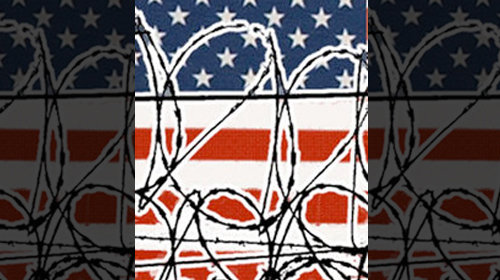
I’m in Guantánamo today, expecting to argue the ACLU’s constitutional challenge to the censorship of torture in the military commissions this afternoon or tomorrow.
The Guantánamo military commissions were created in part to hide the government’s illegal torture program while permitting the use of information obtained through torture. Because of improvements in 2009 in the law governing the commissions, it’s harder (though not impossible) for coerced evidence to be used in the proceedings. But the government still wants to hide from the public what it did to prisoners in CIA and military custody.
We filed our challenge in May, in response to the government’s request that the military judge enter a “protective order” that would prevent the public from hearing any testimony by the 9/11 defendants about their rendition, torture, and detention in U.S. custody. According to the government, any statements by the defendants’ concerning their “exposure” to the CIA’s detention and interrogation program are classified because they concern intelligence “sources, methods and activities” of the U.S. In its most recent filing, the government has effectively claimed that it owns and controls the defendants’ memories, “thoughts and experiences” of government torture. These chillingly Orwellian claims are legally untenable and morally abhorrent.
Our nation has a centuries-long tradition, guaranteed by the First Amendment, of open trials in which the public has access to the full truth. That right can only be restricted if the government shows – and the military judge finds – that public testimony would result in harm to a compelling government interest. The government has no legitimate interest, let alone a compelling one, in preventing the public from hearing testimony about an illegal program that the president of the United States has shut down, and the details of which are already widely known because of press reports and the government’s own disclosures.
We have asked the military judge to reject the government’s censorship regime, and to deny its related request for a 40-second delay in the audio feed of the commission proceedings. That delay allows a government censor to cut off the sound so that the public, press, and trial observers do not hear defendants’ testimony about their own torture and detention. A group of 14 press organizations will also be arguing today for the media’s right to access the commission's proceedings.
As our motion says,
The eyes of the world are on this Military Commission, and the public has a substantial interest in and concern about the fairness and transparency of these proceedings. This Commission should reject–and not become complicit with–the government’s improper proposals to suppress the defendants’ personal accounts of government misconduct.
If the government succeeds in imposing its censorship regime and keeping the defendants’ torture testimony secret from the public, the commissions will certainly not be seen as legitimate.
Learn more about military commissions: Sign up for breaking news alerts,follow us on Twitter, and like us on Facebook.



